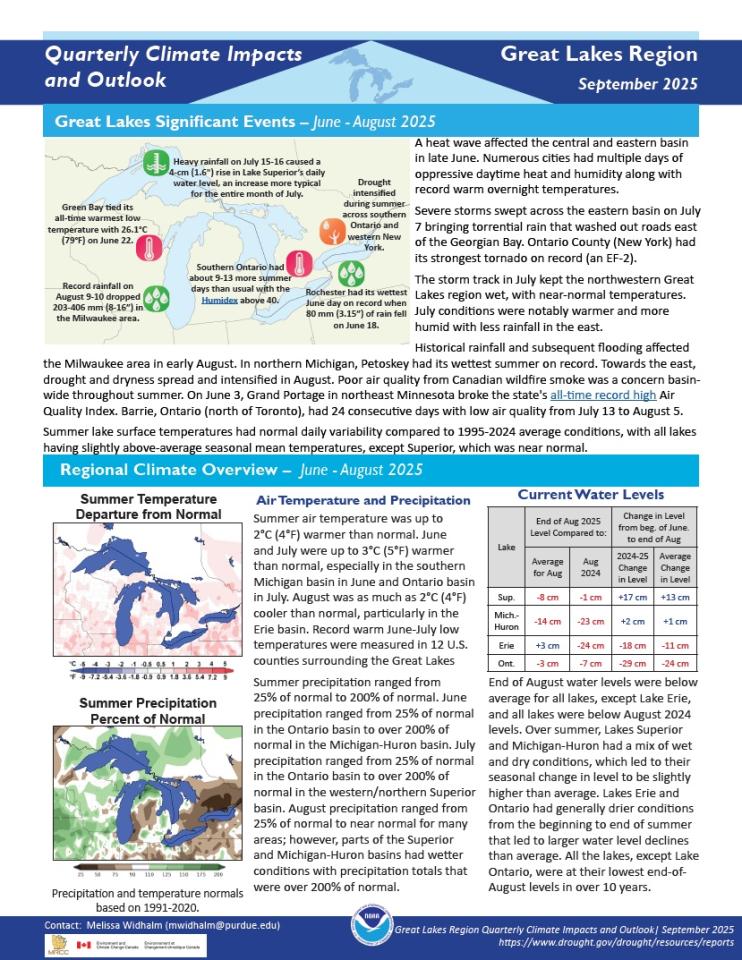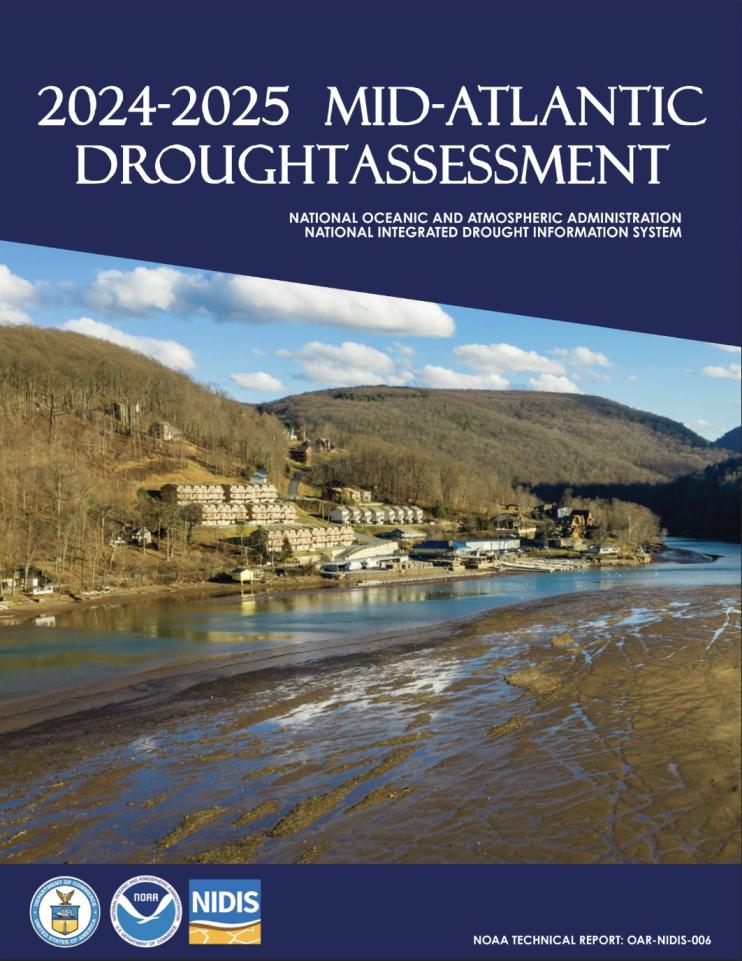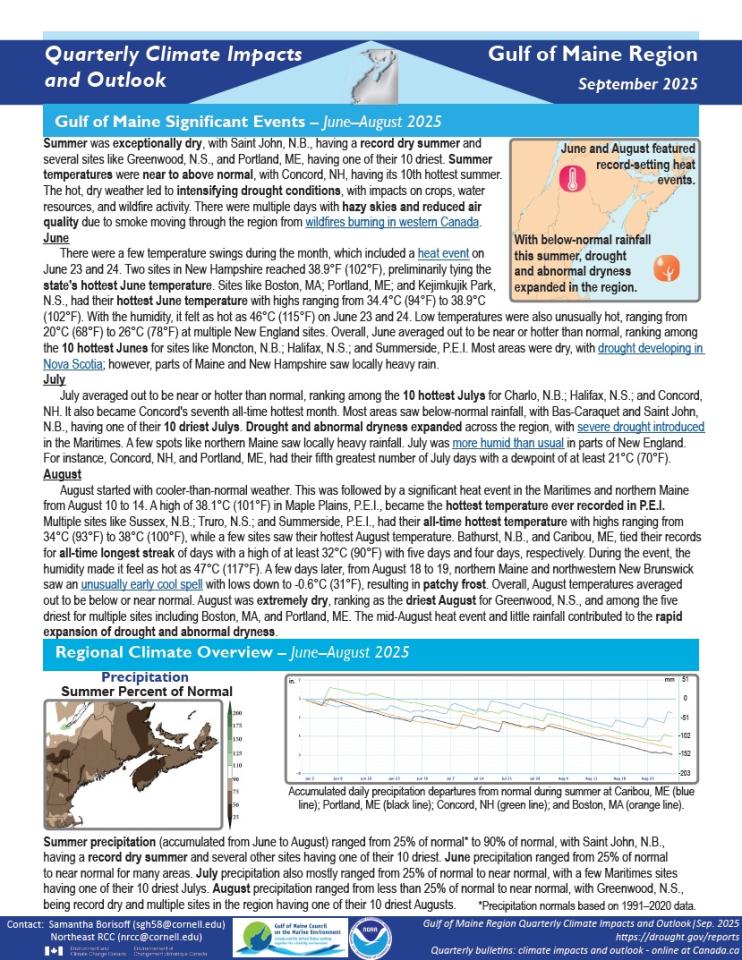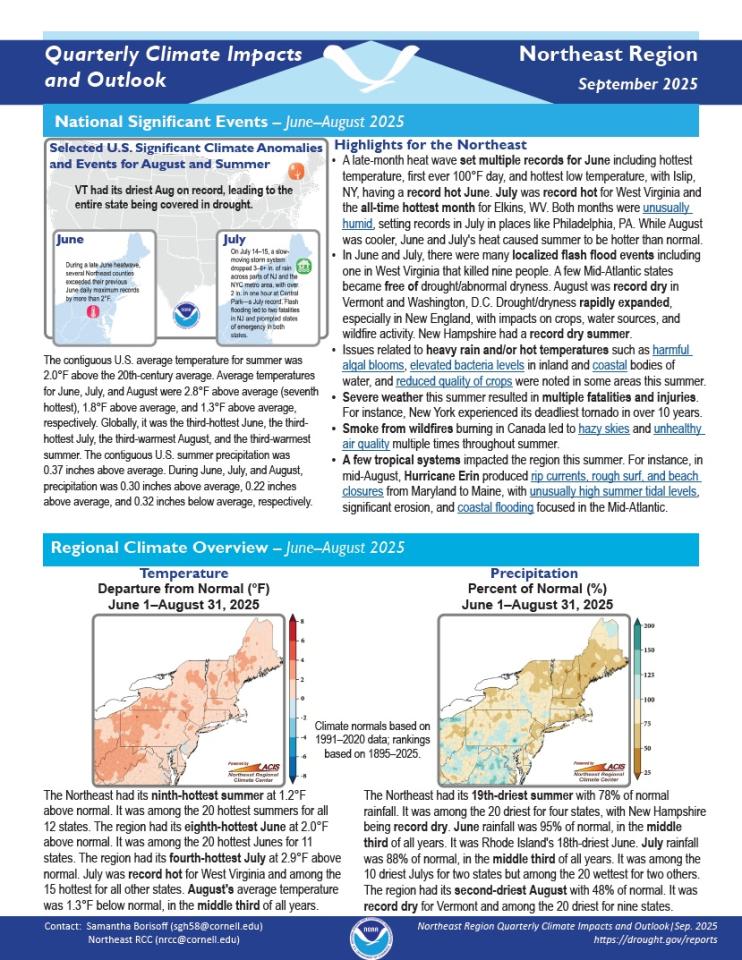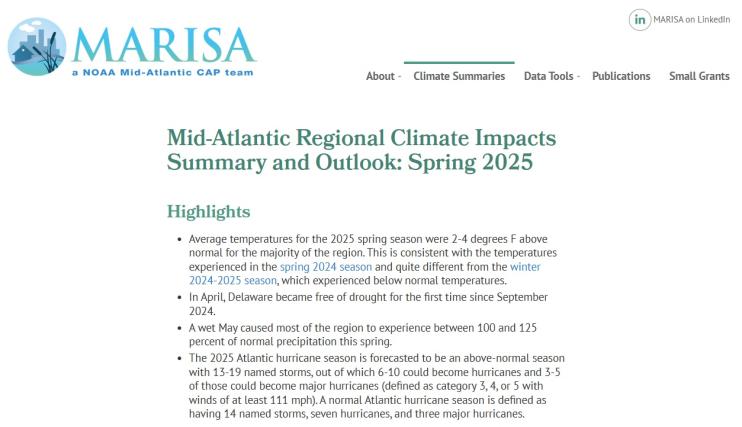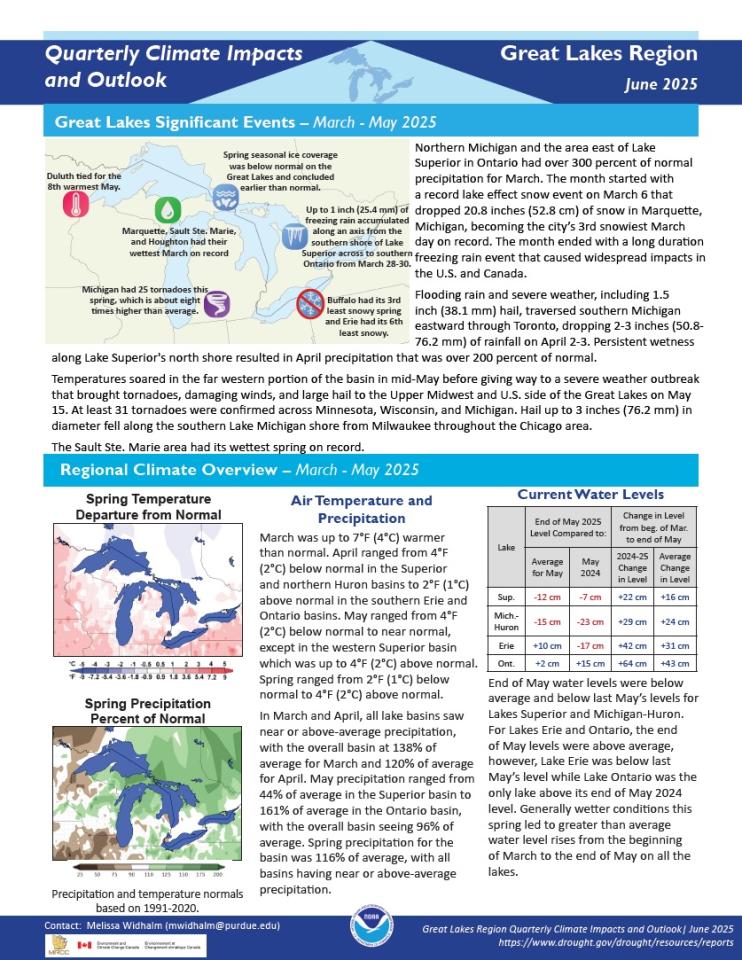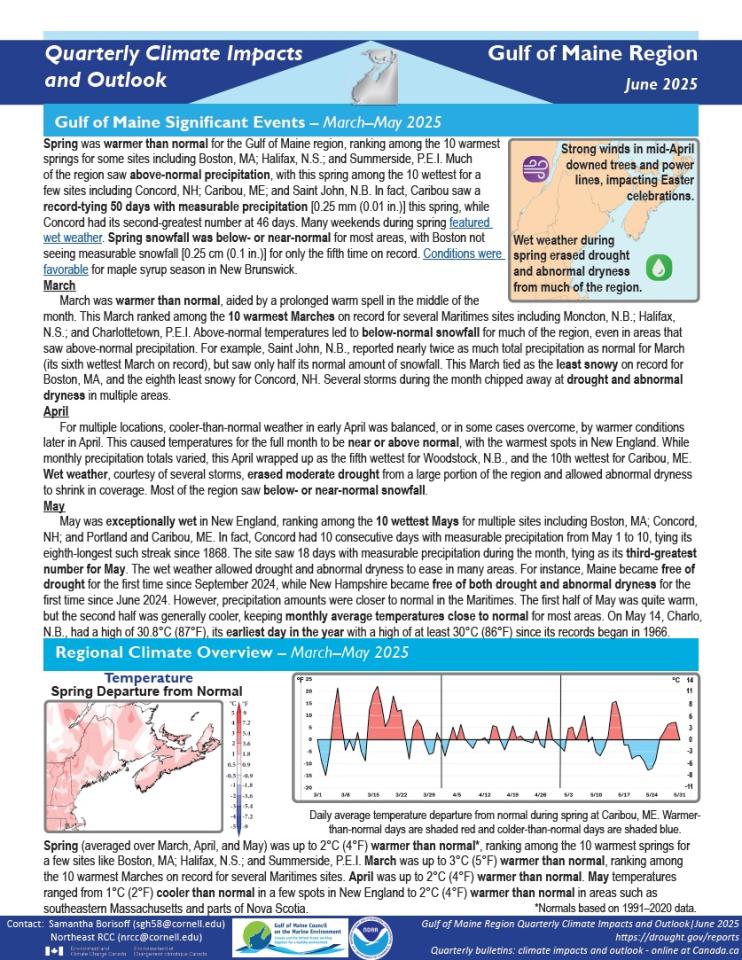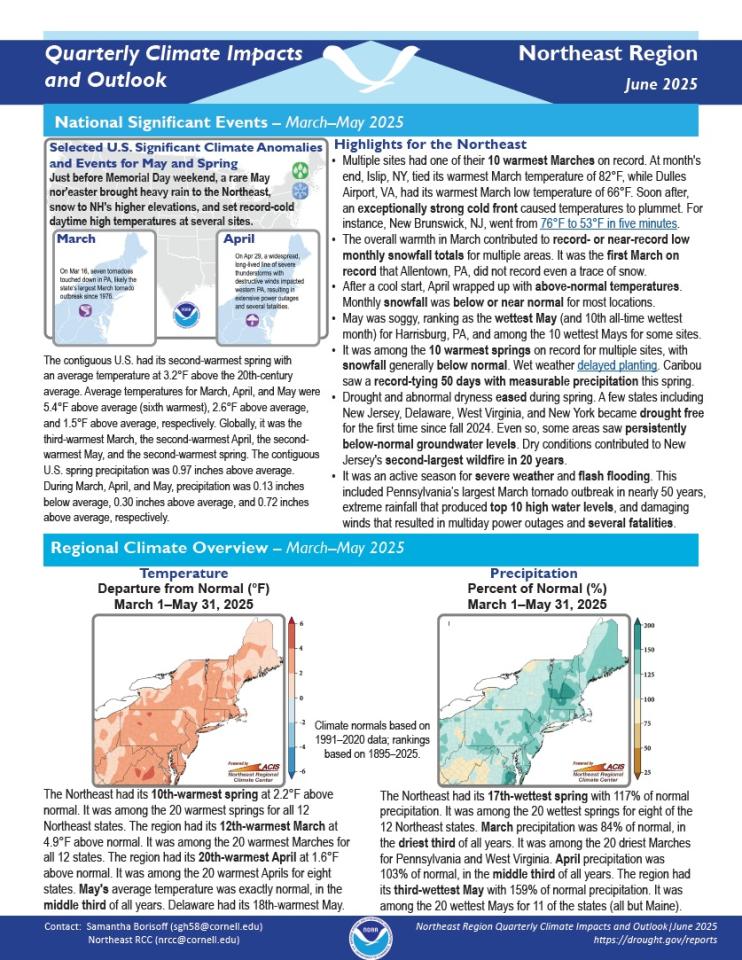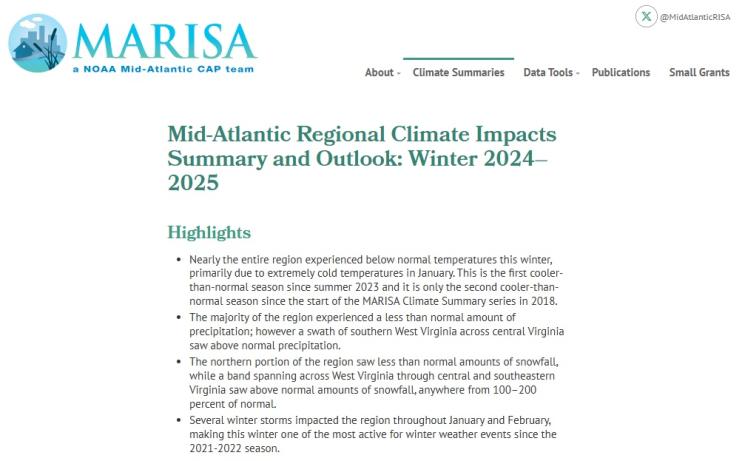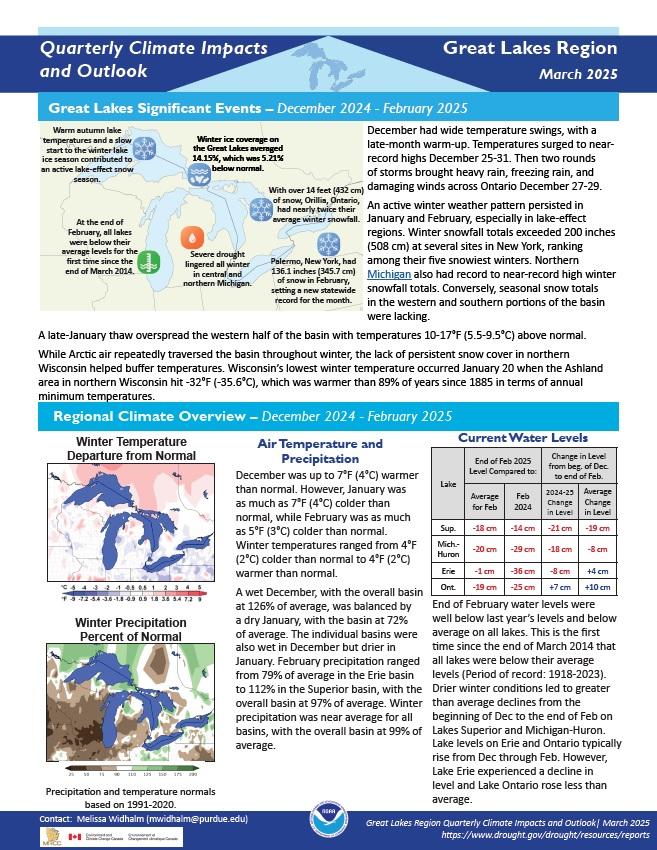Quarterly Climate Impacts and Outlook for the Great Lakes Region for June–August 2025. Dated September 2025.
Summer air temperature was up to 2°C (4°F) warmer than normal. Record warm June-July low temperatures were measured in 12 U.S. counties surrounding the Great Lakes. Summer precipitation ranged from 25% of normal to 200% of normal.
Drought has occurred frequently in the Mid-Atlantic states over the past century. Major droughts occurred in the 1930s, 1940s, 1960s, and 1980s, with several lasting for more than a year. In 2024, heat and a lack of rainfall led to widespread drought across Delaware, Maryland, New Jersey, Pennsylvania, Virginia, West Virginia, and the District of Columbia. For some locations, the 2024 drought was the worst the region had experienced in more than two decades.
Quarterly Climate Impacts and Outlook for the Gulf of Maine Region for June–August 2025. Dated September 2025.
Summer temperatures ranged from near normal to 3°C (5°F) above normal for most areas, with Concord, New Hampshire, having its 10th hottest summer. Summer precipitation ranged from 25% of normal to 90% of normal, with Saint John, N.B., having a record dry summer and several other sites having one of their 10 driest.
Quarterly Climate Impacts and Outlook for the Northeast Region for June–August 2025. Dated September 2025.
The Northeast had its ninth-hottest summer at 1.2°F above normal. The Northeast had its 19th-driest summer with 78% of normal rainfall. It was among the 20 driest for four states, with New Hampshire being record dry.
Quarterly Climate Impacts and Outlook for the Mid-Atlantic Region for March–May 2025. Dated June 2025.
Quarterly Climate Impacts and Outlook for the Great Lakes Region for March–May 2025. Dated June 2025.
Spring temperatures ranged from 2°F (1°C) below normal to 4°F (2°C) above normal. Spring precipitation for the basin was 116% of average, with all basins having near or above-average precipitation.
Quarterly Climate Impacts and Outlook for the Gulf of Maine Region for March–May 2025. Dated June 2025.
Spring was up to 2°C (4°F) warmer than normal, ranking among the 10 warmest springs for a few sites like Boston, Massachusetts; Halifax, Nova Scotia; and Summerside, Prince Edward Island. Spring precipitation ranged from 75% of normal to 175% of normal, ranking among the 10 wettest for a few sites.
Quarterly Climate Impacts and Outlook for the Northeast Region for March–May 2025. Dated June 2025.
The Northeast had its 10th warmest spring on record at 2.2°F above normal. It was among the 20 warmest springs for all 12 Northeast states. The Northeast as a whole had its 17th wettest spring with 117% of normal precipitation. It was among the 20 wettest springs for 8 of the 12 Northeast states.
Quarterly Climate Impacts and Outlook for the Mid-Atlantic Region for December 2024–February 2025. Dated March 2025.
Quarterly Climate Impacts and Outlook for the Great Lakes Region for December 2024–February 2025. Dated March 2025.
Winter temperatures ranged from 4°F (2°C) colder than normal to 4°F (2°C) warmer than normal. Winter precipitation was near average for all basins, with the overall basin at 99% of average.


